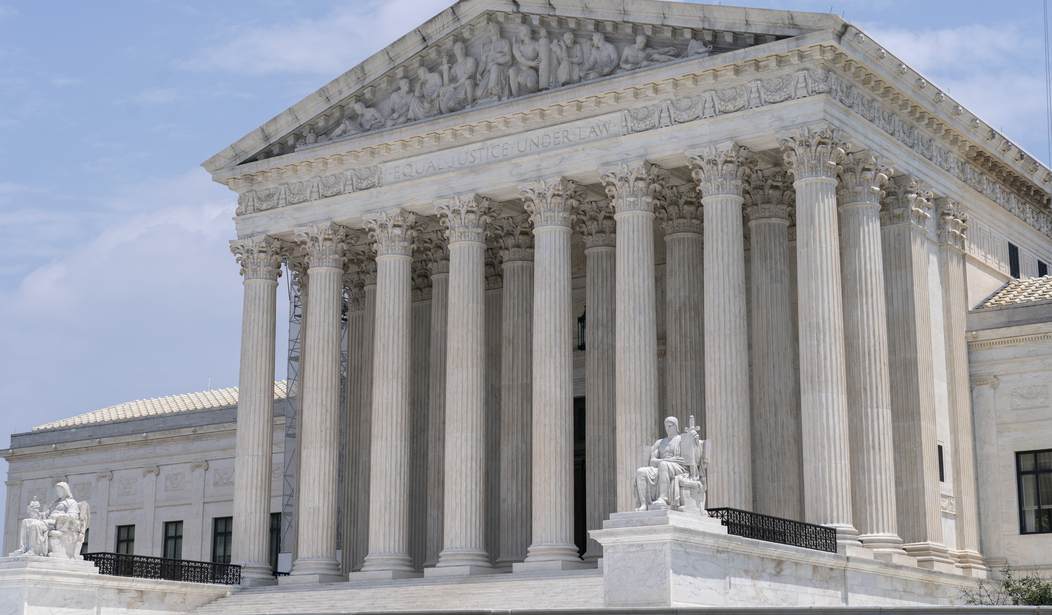As promised in the previous Skinny on SCOTUS installment, my effort to get us caught up on this term's Supreme Court decisions continues. We've got a ways to go, so I'm going to pick up the pace a bit. For this installment, we'll take a look at the four decisions handed down by the court in January.
I'll note that three of the four were 9-0 (i.e., unanimous) decisions — one of which was authored by Justice Elena Kagan and one of which was authored by Justice Neil Gorsuch. The third was per curiam (i.e., by the court/without attribution). The fourth case was a 7-2 decision, with Justice Samuel Alito concurring and Justices Clarence Thomas and Neil Gorsuch dissenting.
Again, this is by no means intended as a thorough analysis — rather, my aim here is to provide a quick overview for the non-law-geek sorts:
January 2025 Decisions
Royal Canin U.S.A. v. Wullschleger
Date: January 15, 2025
Author: Kagan
Split: 9-0
Dissent: N/A
Appeal From: Eighth Circuit
Respondent Anastasia Wullschleger sued petitioner Royal Canin U. S. A., Inc., in state court, alleging that Royal Canin had engaged in deceptive marketing practices. Her original complaint asserted claims based on both federal and state law. Royal Canin removed the case to federal court under 28 U. S. C. § 1441(a). That removal was premised on Wullschleger's federal claim, which gave rise to federal-question jurisdiction and also allowed the federal court to exercise supplemental jurisdiction over Wullschleger's factually intertwined state claims. §§ 1331, 1367. But federal court is not where Wullschleger wanted the case to be resolved. So she amended her complaint, deleting every mention of federal law, and petitioned the District Court for a remand to state court. The District Court denied Wullschleger's request, but the Eighth Circuit reversed. In the Eighth Circuit's view, Wullschleger's amendment had eliminated any basis for federal-question jurisdiction. And without a federal question, the court concluded, there was no possibility of supplemental jurisdiction over Wullschleger's state-law claims.
- Whether such a post-removal amendment of the complaint defeats federal question subject-matter jurisdiction.
- Whether such a post-removal amendment of the complaint precludes a district court from exercising supplemental jurisdiction over the plaintiff's remaining state-law claims pursuant to 28 U.S.C. § 1367.
Holding: Affirmed.
When a plaintiff amends her complaint to delete the federal-law claims that enabled removal to federal court, leaving only state-law claims behind, the federal court loses supplemental jurisdiction over the state claims, and the case must be remanded to state court.
Skinny: Even if a plaintiff's initial claim involves both federal and state law questions, if the plaintiff subsequently amends their pleading to remove federal question(s) from their lawsuit, the federal courts no longer have jurisdiction over the case. (Frankly, I'm a little surprised this was even still a question...but now, it no longer is.)
Date: January 15, 2025
Author: Kavanaugh
Split: 9-0
Dissent: N/A
Appeal From: Fourth Circuit
In 1938, Congress enacted the Fair Labor Standards Act (FLSA), guaranteeing a federal minimum wage for covered workers, 29 U. S. C. § 206(a)(1), and requiring overtime pay for those working more than 40 hours per week, § 207(a)(1). Congress exempted many types of employees from the FLSA's overtime-pay requirement, including outside salesmen who primarily work away from their employer's place of business. § 213(a)(1). The law places the burden on the employer to show that an exemption applies.
Petitioner EMD distributes food products in the Washington, D. C., area and employs sales representatives who manage inventory and take orders at grocery stores. Several sales representatives sued EMD alleging that the company violated the FLSA by failing to pay them overtime. EMD argued that the sales representatives were outside salesmen and therefore exempt from the FLSA's overtime-pay requirement. After a bench trial, the District Court found EMD liable for overtime because EMD did not prove by clear and convincing evidence that its sales representatives were outside salesmen. On appeal, EMD argued that the District Court should have used the less stringent preponderance-of-the-evidence standard instead of the clear-and-convincing-evidence standard. Applying Circuit precedent, the Fourth Circuit disagreed and affirmed the District Court's judgment.
Whether the burden of proof that employers must satisfy to demonstrate the applicability of an FLSA exemption is a mere preponderance of the evidence — as six circuits hold — or clear and convincing evidence, as the Fourth Circuit alone holds.
Holding: Reversed and remanded.
The preponderance-of-the-evidence standard applies when an employer seeks to demonstrate that an employee is exempt from the minimum-wage and overtime-pay provisions of the FLSA.
Skinny: While an employer has the burden of proving its employees are exempt from federal minimum wage requirements, the bar for meeting that burden is lower (more likely than not) than the district court and the Fourth Circuit applied here (substantially more likely to be true than not). In other words, the burden is on the employer to prove the exemption applies, but it's a relatively easy burden to meet.
Date: January 17, 2025
Author: Per Curiam
Split: 9-0
Dissent: N/A
Appeal From: D.C. Circuit
As of January 19, the Protecting Americans from Foreign Adversary Controlled Applications Act will make it unlawful for companies in the United States to provide services to distribute, maintain, or update the social media platform TikTok, unless U. S. operation of the platform is severed from Chinese control. Petitioners are two TikTok operating entities and a group of U. S. TikTok users. We consider whether the Act, as applied to petitioners, violates the First Amendment.
Issue: Whether the Act violates the First Amendment
Holding: Affirmed.
There is no doubt that, for more than 170 million Americans, TikTok offers a distinctive and expansive outlet for expression, means of engagement, and source of community. But Congress has determined that divestiture is necessary to address its well-supported national security concerns regarding TikTok’s data collection practices and relationship with a foreign adversary.
Skinny: Congress enacted the ban, and SCOTUS found that it did not violate the First Amendment. So, the ban went into effect — briefly. Then, President Trump was sworn into office and, as one of his first executive actions, signed an executive order extending the deadline for ByteDance to divest its ownership interest in the app by 75 days — to April 5.
Find our related coverage on the TikTok ban here.
Date: January 21, 2025
Author: Per Curiam
Split: 7-2
Dissent: Thomas, Gorsuch
Appeal From: 10th Circuit
An Oklahoma jury convicted Brenda Andrew of murdering her husband, Rob Andrew, and sentenced her to death. The State spent significant time at trial introducing evidence about Andrew’s sex life and about her failings as a mother and wife, much of which it later conceded was irrelevant. In a federal habeas petition, Andrew argued that this evidence had been so prejudicial as to violate the Due Process Clause. The Court of Appeals rejected that claim because, it thought, no holding of this Court established a general rule that the erroneous admission of prejudicial evidence could violate due process. That was wrong. By the time of Andrew’s trial, this Court had made clear that when “evidence is introduced that is so unduly prejudicial that it renders the trial fundamentally unfair, the Due Process Clause of the Fourteenth Amendment provides a mechanism for relief.” Payne v. Tennessee, 501 U. S. 808, 825 (1991).
Issue: Whether the Tenth Circuit properly assessed whether the admission of prejudicial evidence at trial could violate the Due Process Clause.
Holding: Vacated and remanded.
At the time of the decision of the Oklahoma Court of Criminal Appeals, clearly established federal law provided that the erroneous admission of unduly prejudicial evidence could render a criminal trial fundamentally unfair in violation of due process.
Skinny: The Tenth Circuit applied the law wrong in reviewing this case and needs to go back and take another look. This one's a bit tricky, but the bottom line is that there are instances where improperly admitted evidence can be so prejudicial that it violates a defendant's right to due process.
You can check out prior installments of The Skinny on SCOTUS series here.















